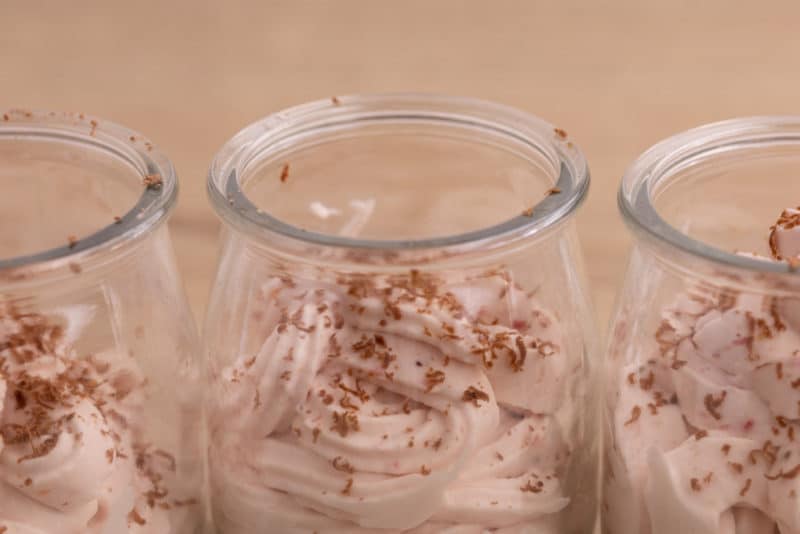Heavy cream typically found at grocery stores is Ultra-High Temperature (UHT) processed, extending its shelf life. Once opened in the fridge it can generally remain fresh for 30 days after first use.
However, heavy cream can still spoil and should be thrown out at this point. Here are a few methods for testing whether your heavy cream has gone bad.
Refrigeration
Heavy cream is a dairy product with a high fat content, helping it remain fresher than other milk products. When pasteurized, its stability even further exceeds non-pasteurized milk products. Although heavy cream generally lasts three to five days after its expiration date has passed, ideally use before that date as older cream can lose its consistency and won’t whip as effectively as newer varieties.
Heavy cream will last much longer if stored refrigerated at all times and in its original packaging, in the back of your fridge rather than near the door to avoid rapid melting. For optimal storage results, place it inside an airtight resealable plastic bag or food storage container for further protection.
grocery store brands of heavy cream typically have a long shelf life due to its lower water content and higher fat content, but may not be as stable as ultra-pasteurized cream from local dairy suppliers due to being heated at higher temperatures for less time.
Check for mold, cottage cheese-like clumps, or an unpleasant sour flavor to determine whether the cream has gone bad. Discard it if there has been separation or noticeable texture changes as soon as it occurs.
Once opened, cream can be reused in various ways. If your cream is about to expire soon, try making homemade ice cream; alternatively you could also add it to soups or other dishes for enhanced flavor; this is a great way to reduce food waste! Alternatively you could freeze some cubes and use them later to create whipped cream for baking purposes!
Freezer
Heavy cream is a versatile kitchen ingredient that can be used in many different dishes. From sweet dessert toppings and pasta sauces, to coffee drinks and adding finishing touches on cakes and cookies – heavy cream has it all.
When it comes to heavy cream, the USDA advises keeping it in the fridge for at least one month after opening it. This timeframe assumes a constant refrigerator temperature – otherwise, its texture could change or it might taste off.
Heavy cream is typically pasteurized, meaning that it can remain edible well past the best-if-used-by date. To ensure it remains safe for consumption, however, check for signs of spoilage such as foul smell, discolored hue, or thick, lumpy texture regularly to determine its safety for consumption.
Checking your cream’s expiration date on its packaging can also help determine when it will spoil. But keep in mind that dairy product expiration dates don’t always reflect how long its shelf life will be at room temperature, since some brands have stringent policies regarding how long their products can remain fresh for.
Heavy cream that has come close to its expiration can begin to spoil and form a sour flavor, making it harder for whipping or curdling purposes. Furthermore, even if the cream won’t be used immediately it should be stored in the back of your fridge, so as not to get knocked around by other food or beverages.

Storing in a Mason Jar
Heavy cream’s high fat content allows it to last several weeks past its best-by date in the refrigerator before spoiling; if these signs of spoilage appear – such as an unpleasant odor or cream starting to separate from liquid – then it is time for disposal of this container of cream.
When buying heavy cream, seek the farthest expiration date on its label and then check back when you arrive home to ensure it has not passed. It may also be wise to buy ahead of its due date to avoid overspending on product that won’t get eaten quickly enough.
Heavy cream differs from other dairy products in that it comes packaged in cardboard cartons that can be easily resealed after opening, unlike milk and butter which usually come packaged in plastic wrap or glass containers. Although you should keep in mind that even unopened cartons of heavy cream might still contain bacteria and other contaminants present at stores; thus, it is wise to always wash your hands after handling heavy cream or any other dairy product prior to consumption.
As part of your dairy consumption regimen, it is also vitally important that cream be refrigerated and sealed securely – for instance by placing it into a Mason jar which protects it from spoilage by its glass composition, keeping out microorganisms that could spoil its quality. If this option is unavailable to you, using plastic lids or even aluminum foil works just as effectively.
Cream should be stored at the back of your fridge, away from produce that may produce strong odors. Before using, be sure to inspect it as some might already be spoilt even though it still seems edible; it would be wise to dispose of this product rather than risk its dangers to consume it later on.
Freezing in Ice Cube Trays
Heavy cream has an indefinite shelf life depending on how it is stored; however, in general it will keep fresh for three months when kept frozen. To ensure proper freezing, follow all instructions listed on its packaging; additionally it would be wise to store it in an airtight container using rubber seals whenever practical.
One effective method for prolonging the shelf life of cream is freezing it in ice cube trays. This will enable you to access smaller amounts whenever they are necessary. Simply pour your cream into an ice cube tray and store in the freezer; once frozen, simply transfer the cubes to a plastic bag or another airtight container where they will stay until needed. It is a good idea to label these containers so you know exactly what they contain as well as when they were created.
When freezing cream, it is crucial not to store it with other forms of food as this could accelerate spoilage and result in off-flavors when defrosted. Furthermore, using different ice cube trays when storing various kinds of cream can prevent accidents like these from happening accidentally.
Keep your cream in the coldest part of your refrigerator to reduce spoilage, while making sure not to store it near metal objects, which could create off-flavors.
Once your cream has become inedible, there is no chance for renewal. If it smells foul or tastes strange, it is no longer safe to consume and should be disposed of immediately.
Be it for baking or toppings, it is crucial that you understand how long the cream will remain fresh in the fridge. If your cream begins going bad before its expiration date has passed, purchase a new carton before that date passes in order to prevent an expensive waste.


